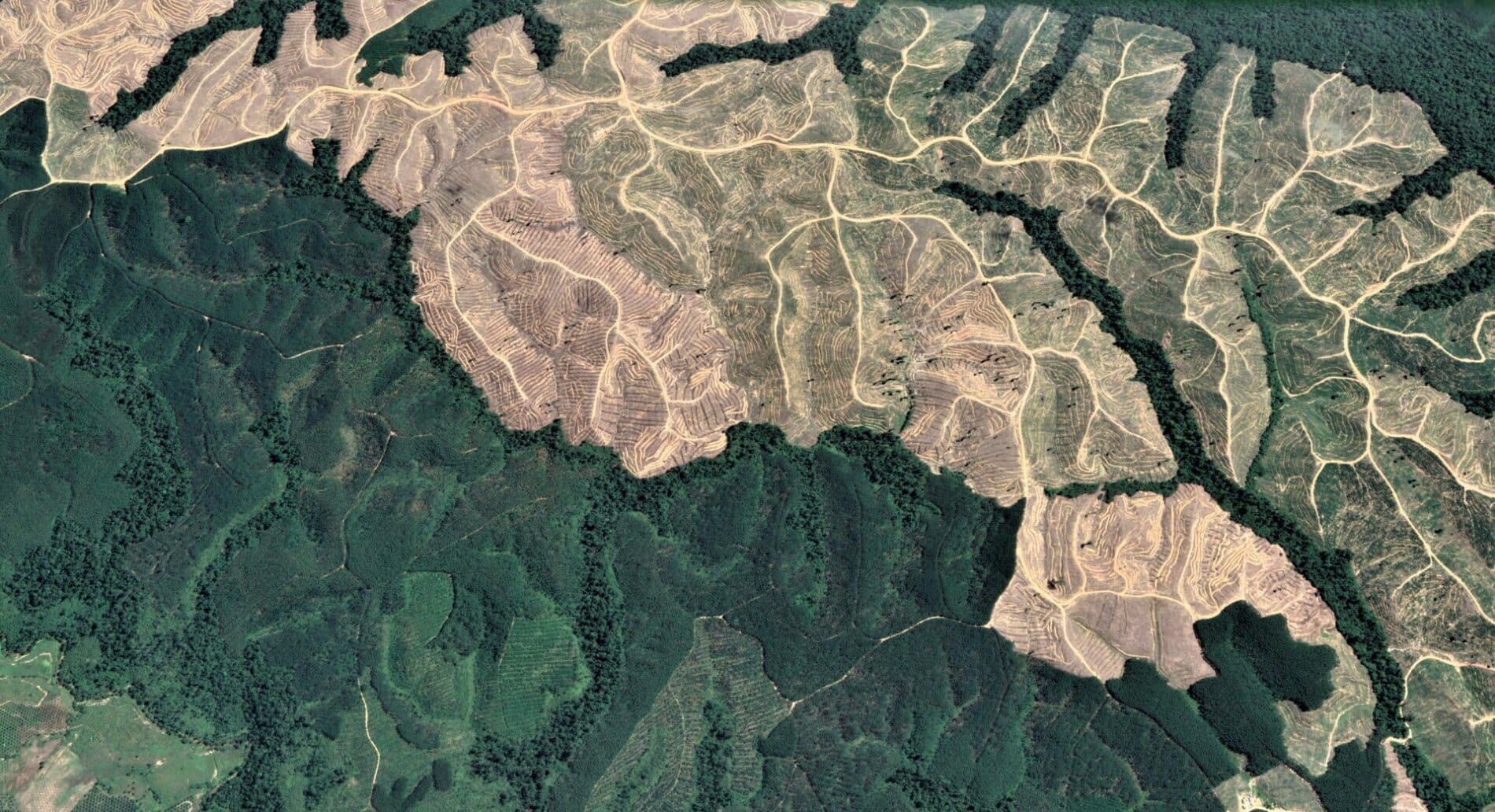The need for cross-commodity no-deforestation policies by the world’s palm oil buyers

Aidenvironment report calls for strengthening no-deforestation policies by the world’s palm oil refiners
- The industrial tree sectors of Indonesia and Malaysia have continuing deforestation.
- The deforesting companies are business partners of the world’s main palm oil refiners.
- By adopting cross-commodity policies, palm oil refiners can protect more forests.
The need for cross-commodity no-deforestation policies by the world’s palm oil buyers
[Click here for the Indonesian version of the article]
Amsterdam, 26 August 2021. In a new report, Aidenvironment documents 133,000 hectares of deforestation committed by ten companies in the industrial tree sectors of Indonesia and Malaysia since 2016. This includes 21,000 hectares since 2020. The highlighted ten companies are all business partners of the world’s largest palm oil refiners. The report demonstrates the need for these palm oil refiners to expand the scope of their no-deforestation commitments to include the industrial tree sector, and use their leverage to save more forests.
To view the report: The need for cross-commodity no-deforestation policies by the world’s palm oil buyers
The Indonesian and Malaysian industrial tree sectors are the second largest plantation sectors in their countries, after palm oil. There is a large overlap between companies owning industrial tree and oil palm plantations. The report covers deforestation cases by seven such companies in Indonesia (Nusantara Fiber, Djarum, Adindo Hutani Lestari, Alas Kusuma, Jhonlin, Hardaya and Sampoerna) and three companies in Malaysia (Rimbunan Hijau, Samling and Shin Yang).
All of these plantation companies have supply chain links to one or more of the world’s largest palm oil refiners. These refiners, including Wilmar, Musim Mas, Golden Agri Resources and Cargill, all have policies that commit them to removing deforestation from their supply chains. However, these policies only apply to deforestation for oil palm, leaving them exposed to deforestation for other commodities.
Consumer goods companies, including Colgate-Palmolive, Danone, Friesland Campina, General Mills, Grupo Bimbo, Johnson&Johnson, Kellogg’s, L’Oréal, Mars, Mondelēz, Nestlé, P&G, PepsiCo, Reckitt Benckiser, Hershey, and Unilever are linked to palm oil refiners covered in the report and remain exposed to risks from deforesting actors.

Aidenvironment’s report shows that the seven deforesting Indonesian companies still have 373,000 hectares of intact forests inside their concession areas, often habitat of the Critically Endangered Bornean orangutan.
Palm oil buyers have the opportunity to contribute to forest conservation. By including industrial trees in their no-deforestation policies and applying pressure on these business partners to comply with company-wide policies, palm oil refiners and consumer goods companies could save more forests and contribute significantly to increased sustainability in both Indonesia and Malaysia’s two most significant land-use sectors.
For more information, please contact: Chris Wiggs, Aidenvironment, wiggs@aidenvironment.asia
View the report here | More on Aidenvironment’s pulp and paper project here
